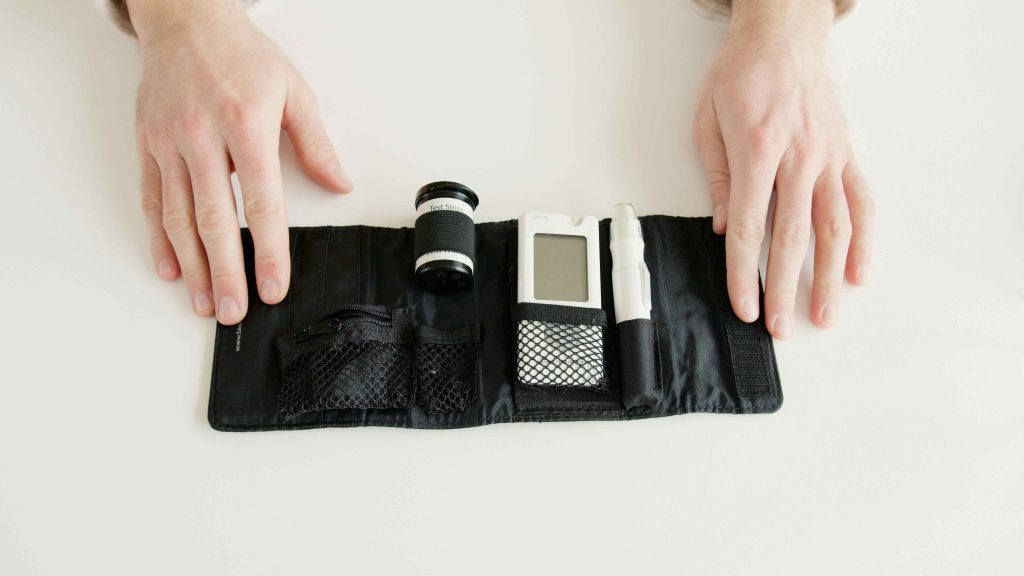Type 2 diabetes often develops silently, with symptoms so mild that they’re easy to miss. Yet, the earlier it is detected, the greater your chances of preventing complications and living a healthy life. In this blog, we’ll explore why early detection of type 2 diabetes is crucial and how it can be a life-changing decision.
What Happens When Diabetes Goes Undetected?
When type 2 diabetes goes unnoticed, it allows high blood sugar levels to persist unchecked. Over time, this can lead to serious complications, including:
Cardiovascular Diseases: High blood sugar damages blood vessels and increases the risk of heart attacks and strokes.
Kidney Damage: Prolonged high glucose levels can harm the kidneys, leading to chronic kidney disease or failure.
Vision Loss: Diabetes can cause conditions like diabetic retinopathy, which may lead to blindness if untreated.
Nerve Damage: Known as neuropathy, this condition can result in pain, numbness, and issues with digestion or sexual health.
Amputations: Poor circulation and nerve damage increase the risk of infections, which may require amputation in severe cases.
The Benefits of Early Detection
Catching type 2 diabetes early doesn’t just prevent complications—it can sometimes reverse the condition entirely through lifestyle changes. Here’s how early detection makes a difference:
1. Improved Treatment Options
The earlier diabetes is detected, the more treatment options are available. Early-stage diabetes may be managed with diet, exercise, and monitoring alone, avoiding the need for medications or insulin.
2. Prevention of Complications
Detecting diabetes early allows for better blood sugar control, reducing the risk of complications like heart disease, kidney damage, and nerve issues.
3. Lifestyle Changes with Greater Impact
At the prediabetes or early diabetes stage, changes like a healthier diet and regular exercise can have a profound effect. These lifestyle modifications may delay or even prevent the progression of diabetes.
4. Enhanced Quality of Life
Managing diabetes early ensures fewer health disruptions, allowing individuals to maintain their daily routines and enjoy a better quality of life.
Steps to Detect Diabetes Early
1. Know the Risk Factors
While anyone can develop type 2 diabetes, certain factors increase the risk:
Family history of diabetes
Being overweight or obese
Sedentary lifestyle
Poor dietary habits
High blood pressure or cholesterol levels
History of gestational diabetes
2. Watch for Warning Signs
Be mindful of symptoms like excessive thirst, frequent urination, fatigue, blurred vision, or slow-healing wounds. These signs could indicate high blood sugar levels.
3. Get Regular Check-Ups
Routine medical check-ups are key, especially if you have risk factors. Your doctor may recommend the following tests:
A1C Test: Measures average blood sugar levels over the past 2-3 months.
Fasting Blood Sugar Test: Checks glucose levels after fasting overnight.
Oral Glucose Tolerance Test: Evaluates how your body processes sugar.
4. Advocate for Yourself
If you’re experiencing symptoms or have concerns, speak up. Early diagnosis can only happen if you take the initiative to seek medical advice.
A Call to Action: Don’t Wait
Early detection of type 2 diabetes isn’t just a health decision; it’s a life-saving one. With timely diagnosis and intervention, you can:
Take control of your health
Prevent life-altering complications
Set an example for loved ones to prioritize their well-being
If you’re at risk or suspect you might have type 2 diabetes, don’t wait. Schedule a visit to your healthcare provider today. Together, let’s prioritize health, detect diabetes early, and live life to the fullest.

Type 2 Diabetes: Is It Really Reversible?
A recent National Geographic article [link] explores how type 2 diabetes could be reversible with the right approaches. This condition, which affects millions of people worldwide, has long been considered a chronic and progressive disease. However, recent research challenges this perception and suggests that with lifestyle changes and the right approach, remission is possible. The

How Do GLP-1 Drugs Compare? A Breakdown of Ozempic, Mounjaro, and Trulicity
GLP-1 receptor agonists have revolutionized diabetes management, with drugs like Ozempic, Mounjaro, and Trulicity leading the market. But how do these medications compare in terms of effectiveness, side effects, and patient outcomes? Let’s explore their differences and what they mean for diabetes patients. Understanding GLP-1 Medications GLP-1 receptor agonists mimic a natural hormone that helps

Why Has Medicare Spending on Diabetes Medications Skyrocketed in 5 Years?
In the past five years, Medicare spending on diabetes medications has increased nearly fivefold, reaching $35.8 billion in 2023. This surge has been primarily driven by the growing use of GLP-1 drugs such as Ozempic, Mounjaro, and Trulicity. But what is behind this cost escalation, and how does it affect patients and the U.S. healthcare

The Gut Microbiota and Blood Sugar Control: A Hidden Connection
The human gut is home to trillions of bacteria that play a crucial role in digestion, immune function, and even metabolism. Recent research has revealed a fascinating link between the gut microbiota and blood sugar regulation, shedding light on how the balance of microbes in our intestines can influence diabetes risk and overall metabolic health.

The Dawn Phenomenon: Why Blood Sugar Rises While You Sleep
For many people with diabetes, waking up with high blood sugar levels can be frustrating—especially if they didn’t eat anything overnight. This early-morning spike in blood glucose is known as the Dawn Phenomenon, and it happens due to natural hormonal changes in the body. But why does it occur, and how can it be managed?

The Influence of Red Light on Blood: Can It Improve Diabetes?
Type 2 diabetes is a metabolic disease characterized by insulin resistance and elevated blood glucose levels. In the search for complementary alternatives to improve glycemic control, red light therapy has gained attention due to its potential to enhance circulation, reduce inflammation, and optimize cellular function. But what does science say about it? ✨ What is

